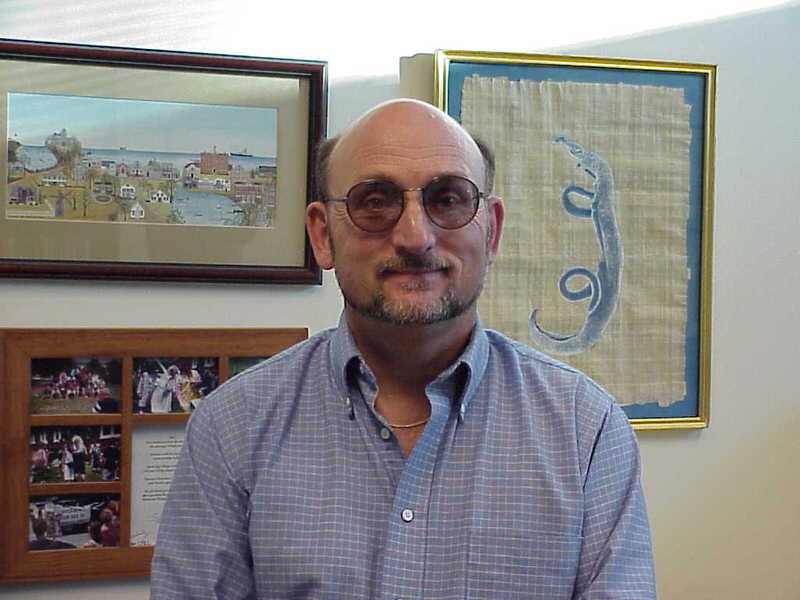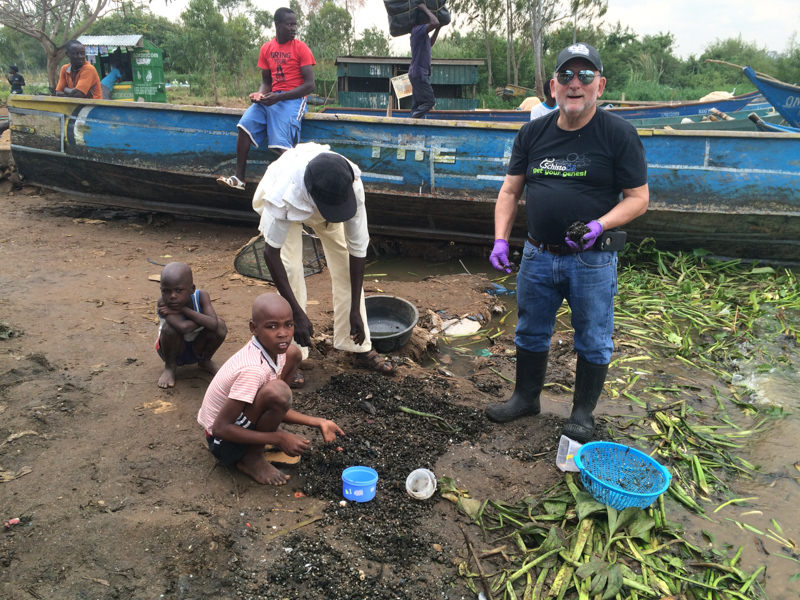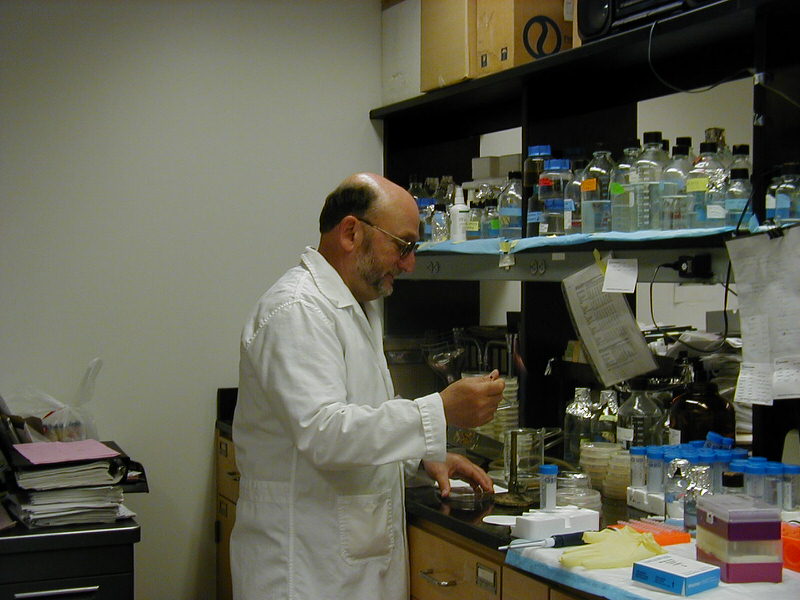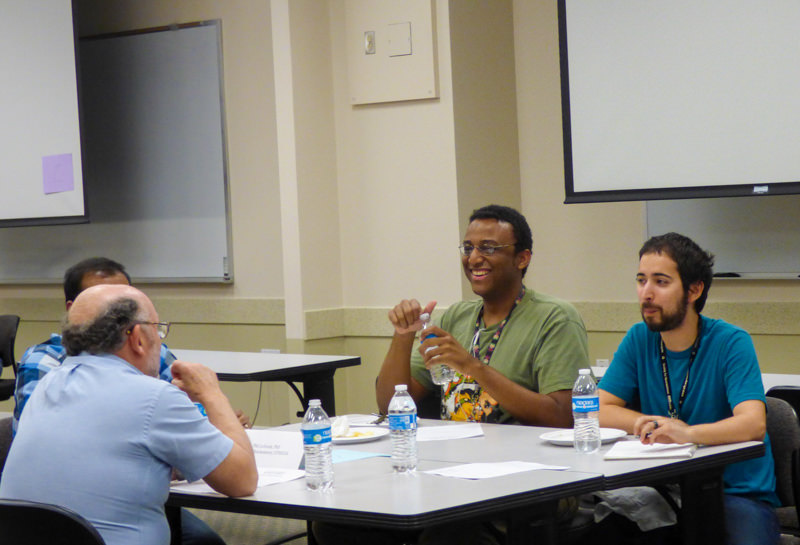Dr. Philip LoVerde: A Lifelong Passion for Schistosomiasis Research

Dr. Philip LoVerde was in his junior year of college at the University of Michigan when his class visited a schistosomiasis lab at the Museum of Zoology. It was there that he learned about schistosomiasis—-a disease that affects almost 270 million people worldwide and is second only to malaria among parasitic diseases with the greatest economic impact in tropical countries.
“I was intrigued by the fact that freshwater snails transmitted a parasite and that these parasites evolved in the snail,” he said.
Dr. LoVerde immediately started volunteering with the lab and was soon asked to go to Egypt to collect snails for field research. After receiving his bachelor’s degree, he stayed on at the University of Michigan to earn two master’s degrees and a Ph.D. He then lived in Egypt for a year during his final year of school.
“Egypt is a place with enormous amounts of history and culture…the pyramids, the food. I learned a lot and after I finished my Ph.D. I wrote grants to go back to Egypt so from 1972 to 2000, I went to Egypt almost every year.”
 For almost 50 years, Dr. LoVerde has been working on schistosomiasis research and continues to travel around the world doing field research.
For almost 50 years, Dr. LoVerde has been working on schistosomiasis research and continues to travel around the world doing field research.
“I collect snails, put on waiters…I’m in the water collecting snails. I collect feces to obtain parasites from the eggs. I also come for treatments and I’m there to talk to parents—I may not speak the local language but the fact that I’m there is a big deal,” he said. “It shows them how much we care. I take a very active role so they know that we are around and working on it.”
The disease is spread by contact with fresh water contaminated with the parasites and those who have been infected a long time may experience liver damage, kidney failure, infertility, or bladder cancer. In children, it may cause poor growth and learning difficulty. Currently, Praziquantel is the medication that is used to treat the disease.
“The drug works well with minimal side effects. The problem is that it doesn’t prevent reinfections so if you are a fisherman, you just go back to work in the same fresh water,” Dr. LoVerde explained. “They really need a vaccine or a drug in combination with Praziquantel.”
Drug resistance is also a big concern, says Dr. LoVerde.
“The parasite sexually reproduces in humans so one worm can have over 300 eggs a day and the issue is that the genotypes are different so in the absence of selection pressure, some genotypes will survive. You have to worry about that if people keep taking the same drug, then the worms will eventually become resistant and we are already seeing that happening.”
A ccording to Dr. LoVerde, the range of effectiveness for Praziquantel is between 75 to 90 percent effective.
ccording to Dr. LoVerde, the range of effectiveness for Praziquantel is between 75 to 90 percent effective.
“We are seeing instances where it’s much less than that and we think it’s that drug resistance is building up but until someone is able to prove it, we won’t know for sure.”
As a researcher at UT Health San Antonio, Dr. LoVerde has taken a genetic approach to identifying how drugs work and is working on developing derivatives that will work better.
“After a lot of work, we found that sulfotransferase was responsible for the drug resistance and we figured out how it worked. Then we screened over 150 derivatives and found that 16 kill Schistosoma mansoni better and three that will kill Schistosoma haematobium better and one that will kill Schistosoma japonicum. We then found that one of the derivatives kills 80 percent of the worms in an animal model.”
Dr. LoVerde is looking at more derivatives and is looking to create a new drug to work with Praziquantel.
“We can synthesize these cheaply so that people in 3rd world countries can afford to be treated,” he said. “Once you have the gene responsible for drug resistance then you have a biomarker and you can go to a control program to screen the parasites that are present.”
can synthesize these cheaply so that people in 3rd world countries can afford to be treated,” he said. “Once you have the gene responsible for drug resistance then you have a biomarker and you can go to a control program to screen the parasites that are present.”
He also hopes that one day there will be a vaccine.
“This is a day in age that we have a vaccine against smallpox, measles, and chickenpox but schistosomiasis is still on the rise and infects a huge percentage of people.”
In addition to research, Dr. LoVerde is passionate about mentoring. He has mentored 27 Ph.D. students and 17 postdocs. He also is a mentor for the American Corporate Partners Mentoring Program, which helps veterans help find their next career.
“Mentoring is very important for both students, postdocs, and young faculty. You want to show them the path to be successful and when they are successful it makes you feel good,” he said. “They have to learn how to write papers, grants and give presentations.”
Dr. LoVerde is quick to thank all of his collaborators for their help with his research including
– Dr. Tim Anderson, Genetics Researcher at the Texas Biomedical Research Institute
– Dr. P. John Hart, Director, X-ray Crystallography Core Laboratory and Professor in the Department of Biochemistry and Structural Biology at UT Health San Antonio
– Dr. Stan McHardy, Director, Center for Innovative Drug Discovery, UTSA
“In today’s world, you have to collaborate, no one is able to do it on their own. My lab is a great example of how collaboration can be extremely successful and make significant advances.”
